Juke Girl

Brief Synopsis
Cast & Crew
Curtis Bernhardt
Ann Sheridan
Ronald Reagan
Richard Whorf
George Tobias
Gene Lockhart
Film Details
Technical Specs

Synopsis
Steve Talbot and Danny Malone, two itinerant farmworkers, join the crowd streaming into Cat-Tail, Florida to work the crops. On the way, they encounter Skeeter, a young girl who has become expert in scavenging for her family, as well as Lola Mears and Violet "Murph" Murphy two "juke girls" who entertain at roadhouses known as "juke joints." Steve wants to work the crops, but Danny insists that they try for higher paying jobs at Henry Madden's packing plant. By eliminating his competition, Madden has forced the farmers to accept his low prices for their produce, which so angers Greek American farmer Nick Garcos that he refuses to sell to Madden. When a fight breaks out between Nick and Madden's foreman, Cully, Steve fights on Nick's side. Consequently, Cully refuses to hire either Steve or Danny. Yippee, a worker at the plant, offers to let the two men share his shack in nearby Tent City where Skeeter, Lola and Murph live also. That evening, while Steve and Danny relax at "Muckeye" John's juke joint, Nick, having tried unsuccessfully to sell his crops outside of town, agrees to accept Madden's offer, but Madden, who had surreptitiously prevented the sale, offers Nick an even lower price than before. Furious, Nick again attacks Madden, and this time, Danny, hoping to get in with Madden, joins on Madden's side. Steve comes to Nick's aid, which impresses Lola, who has taken a job at Muckeye's. After the fight, Lola and Steve walk back to Tent City together and discover that they are both from the Midwest where Steve's farmer father was put out of work by the drought. Eager to leave the farm where she grew up, Lola has never wanted to put down roots anywhere else. Steve and Lola check on Nick's progress and learn that he plans to take his crop of tomatoes to Atlanta, hoping to sell them before they rot. Realizing that Nick's truck will never make it that far, Steve and Lola plot to steal one of Madden's trucks, but the theft is discovered, and Nick's tomatoes are destroyed by Madden's men, including Danny. At Lola's suggestion, a devastated Steve helps Nick plant his new crop. Although Danny warns Steve that Madden plans to interfere with the farmers, Nick, Steve and Lola manage to convince the pickers to work for the promise of payment when the crops are sold. Afterward, an angry Madden forces Muckeye to fire Lola, and Steve, who has fallen in love with her, takes her to Nick's to stay. Madden does everything he can to prevent Nick from selling his crops in Atlanta, but the farmers succeed despite his efforts. The footloose Lola runs away in Atlanta and a jubilant Nick and a disheartened Steve return to Florida. That night a drunken Nick tries to patch things up with Madden and when Madden rebuffs his overtures Nick attacks him. In self defense, Madden hits Nick on the head and kills him. He then hides the body and frames Steve and Lola for the murder. When Skeeter tells Danny that Cully is trying to foment a lynch mob, he and Yippee force Madden to confess, and the mob turns on him. Danny leaves town for new territory and Steve and Lola plan to work Nick's farm.

Director

Curtis Bernhardt
Cast
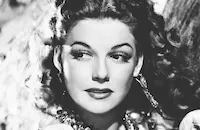
Ann Sheridan
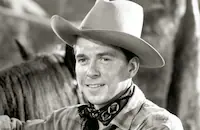
Ronald Reagan

Richard Whorf

George Tobias

Gene Lockhart

Alan Hale
Betty Brewer
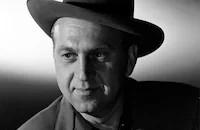
Howard Da Silva

Donald Macbride
Willard Robertson
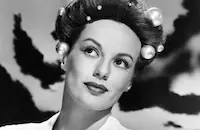
Faye Emerson

Willie Best

Fuzzy Knight
Spencer Charters

William B. Davidson
Frank Wilcox
William Haade
Eddy Waller
Paul Burns
Clancy Cooper
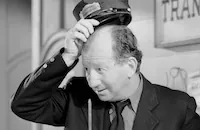
Hank Mann

Jack Mower
Don Turner
Cliff Saum

Paul Panzer
Glen Cavender
Forrest Taylor
Pat Mcveigh
Frank Darien
Pat Flaherty
William Edmunds
Dewey Robinson
Kenneth Harlan

James Flavin
Jean Fitzgerald
Sol Gorss
William Gould
De Wolfe Hopper
Frank Mayo
Alan Bridge
Jack Gardner
Fred Kelsey
Frank Pharr

Ray Teal
Bill Phillips
Guy Wilkerson
Milt Kibbee
Ed Peil Sr.
Victor Zimmerman

Glen Strange
Crew
Milo Anderson
A. I. Bezzerides
Hugh Cummings
Adolph Deutsch
Leo F. Forbstein
Kenneth Gamet
Bert Glennon
Robert Haas
Jesse Hibbs
M. K. Jerome
Charles Lang
Warren Low
Jack Saper
Jack Scholl
Jerry Wald
Perc Westmore

Film Details
Technical Specs

Articles
Juke Girl
This friend of the working man is a drifter named Steve Talbot, and the story begins when he blows into the town of Cat-Tail with his friend, Danny Frazier, looking for a job. The farming economy there is controlled by Henry Madden, a greedy capitalist who cares a great deal about his profits and nothing at all about the growers, pickers, and shippers whose hard, honest labor supports his enterprise. Madden's ruthless methods are plain to see when he gets into a dispute with Nick Garcos, a Greek farmer who's so fed up with being exploited that he tries to buck the system, drawing a fierce counterattack from Cully, the corrupt manager who carries out Madden's orders.
Danny decides to knuckle under and join Madden's team, feeling there's no other choice if he wants to earn a living. Steve stands on principle, joining Nick in his battle against the odds. He also falls for taxi dancer Lola Mears, who resists romance with him because she considers herself a fallen woman. She joins in the effort to help Nick when she gets fired from her job at Muckeye's nightspot, and the action heads toward a confrontation that will resolve things one way or the other. The climax involves a homicide, a frame-up, a last-minute confession, and a lynch mob marching on the local jail.
Juke Girl takes place in Florida rather than California, but it was obviously inspired by The Grapes of Wrath, the John Steinbeck novel about the Great Depression and the Oklahoma Dustbowl drought that led countless poverty-wracked families to head west in search of a better life, or at least a less miserable one. Steinbeck's book appeared in 1939 and John Ford's much-respected movie adaptation arrived the following year; while Ford's picture is more resonant and influential than the comparatively lightweight Juke Girl, it contains dry and didactic moments that the latter film avoids. On the other side of the scale, Reagan is no match for Henry Fonda.
The role of Lola was originally meant for Ida Lupino, who was fresh from three successive triumphs in three successive years The Light That Failed (1939), They Drive by Night (1940), and High Sierra (1941) and now had such a high loan-out fee ($75,000 per film; her salary was $15,000) that Warners promptly sent her into a two-picture deal with Twentieth Century-Fox and handed Sheridan the Juke Girl part. Pairing her with Reagan made excellent sense because the two had just finished the admirable Kings Row (1942) together, greatly pleasing the studio with their work. They started on Juke Girl after just a few days off.
The project was no warm-weather vacation despite the story's Florida locale. Juke Girl was shot in California farm country during the winter of 1941-1942, with temperatures so low that the actors had to spray glycerin on their faces so they'd look like they were sweating, not freezing. They were also told to smoke cigarettes in scene after scene so their vaporized breath wouldn't give the game away. Since more than eighty percent of the scenes take place at night, extensive shooting after dark was necessary as well, increasing the toll on all concerned. "Because you start shooting around eight o'clock in the evening and finish every morning at around five, just before sunrise," director Curtis Bernhardt said, "everybody suffers constantly from fatigue." Reagan had the same reaction. "I discovered how nervous fatigue can creep up on you," he said later. "With all the misconceptions about pampered stars, none is so far afield as the belief that physical discomfort isn't tolerated." As if the fatigue and the cold weren't enough to contend with, truckloads of tomatoes had to be thrown around and smashed during action scenes, then gathered and smooshed together again for further use, raising more and more of a smell as time went on.
Looking back on Juke Girl after some 40 years, Bernhardt said that its anti-corporate, pro-worker position may make it look "rebellious," but at the time people expected this type of movie from Warners, which specialized in no-frills entertainment for ordinary people. Bernhardt worked closely with cinematographer Bert Glennon, personally scoping out the camera movements and aiming for a "feeling of oppression, like the camera is bearing down" on the characters. The only performance that didn't satisfy him was the one by Richard Whorf, who was "too city-like, too intellectual a type" to play Danny and "didn't give the part anything." I find Whorf's acting a refreshing contrast with Reagan's, but Bernhardt may have been on to something, since Whorf switched his career from acting to directing not long afterward.
According to Tuchman in a 1980 article for Film Comment, a romantic scene in Juke Girl presents Reagan's first-ever "big on-screen kiss that counted the first through which he projected character as well as enthusiasm." Other critics have praised Reagan's performance on various other grounds, despite the sharp divergence between his evolving political views and Steve's labor organizing. Asked about this by an interviewer, Bernhardt had an unexpected answer. "I didn't know about his politics," the director said. "I only thought he was stupid....He said that [World War II] was being won by the cavalry. That was the stupidest statement anyone could make, because there is no cavalry in modern warfare." Touché. But at least such differences didn't hinder the making of a lively picture.
Director: Curtis Bernhardt
Screenplay: A.I. Bezzerides
Cinematographer: Bert Glennon
Film Editing: Warren Low
Art Direction: Robert Haas
Music: Adolph Deutsch
With: Ann Sheridan (Lola Mears), Ronald Reagan (Steve Talbot), Richard Whorf (Danny Frazier), George Tobias (Nick Garcos), Gene Lockhart (Henry Madden), Alan Hale (Yippee), Betty Brewer (Skeeter), Howard Da Silva (Cully), Donald MacBride ("Muckeye" John), Willard Robertson (Mr. Just), Faye Emerson (Violet "Murph" Murphy), Willie Best (Jo-Mo), Fuzzy Knight (Ike Harper), Spencer Charters (Keeno), William B. Davidson (Paley), Frank Wilcox (Truck Driver), William Haade (Watchman).
BW-90m.
by David Sterritt

Juke Girl
Quotes
Look bud, every time a freight train shakes itself fleas like you come hopping out.- Lola Mears
Trivia
Notes
A Warner Bros. press release included in the file on the film at the AMPAS Library announced that Ida Lupino was to star in the film. News items in Hollywood Reporter report that some scenes were shot on location in Florida. A juke house was the name given to a cheap roadhouse. The term also refers to the music played in these roadhouses and in brothels.

Miscellaneous Notes
Released in United States 1942
Released in United States 1942















